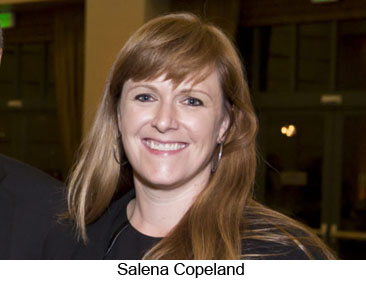Legal aid funding at risk of federal budget cuts
Note: The State Bar distributes approximately $30 million annually to legal aid organizations throughout California. The bar also encourages direct contributions to legal aid funding through the Justice Gap Fund.
By John Roemer
Special to the Bar Journal

The November election sent shockwaves through the legal aid nonprofit community. Suddenly, advocates worried about the $77 million in federal funds that flow to California groups from the Legal Services Corporation, the Department of Education’s advocacy grant program and others.
This money goes to agencies that provide services to low-income residents, promote equal access to justice, curb violence against women, and boost senior citizen protections, advance disability rights and aid similar causes.
The prospective damage is huge. The 11 California programs that get funding from the Legal Services Corporation serve over 200,000 people annually but are forced to turn away many eligible clients due to the lack of resources. Based on the state’s current poverty population, there are over 7,500 eligible clients per legal aid lawyer.
Yet legal aid attorneys tend to be resilient, optimistic and relentlessly upbeat. When the November election results became clear, they did a double take, and then refocused.
“We took a day to grieve,” said Salena G. Copeland, the executive director of the Legal Aid Association of California, of herself and colleagues at nearly 90 association members. “Then we went to work.”
Their hastily launched plan included encouraging pushback by the American Bar Association, the National Legal Aid & Defender Association and others against likely cuts. Plus, agencies are making moves in Sacramento to shore up the Legislature’s contribution to imperiled legal services budgets.
The State Bar of California nurtures partnerships that include private bar associations, policymakers, business and civic leaders, other funders and the financial institutions that hold Interest on Lawyer Trust Accounts (IOLTA) money, a significant non-federal contribution to legal aid budgets.
But worries persist. Minutes before she spoke to a reporter, Silvia R. Argueta, the executive director of Legal Aid Foundation of Los Angeles, had been on yet another conference call with colleagues discussing possible funding cuts. Her group gets 40 percent of its funding from the Legal Services Corporation.
“There’s a level of apprehension, sure, we’re very concerned,” she said. “Our staff is very worried about our clients. We provide safety net services, and if we lose funding there will be a huge gap.”
One plus, Argueta said, is that members of Congress rely on legal aid for constituent services and will likely remember that when budget cuts loom.
“Republicans and Democrats alike, they send clients to us for help with Social Security issues, veterans’ benefits, domestic violence cases, employment and housing,” she said. “We take action, then we reach back to congressional staff to let them know what we did.”
Legal aid officials consoled themselves with the knowledge that access to justice issues have long had bipartisan backing, with prominent conservatives aboard. President Richard Nixon signed into law the Legal Services Corporation Act in 1974. At the LSC’s 40th anniversary celebration in 2014, Associate Justice Antonin Scalia spoke positively about its work.
“The American ideal is not for some justice, it is as the Pledge of Allegiance says, ‘Liberty and justice for all,’ or as the Supreme Court pediment has it, ‘equal justice,’” Scalia said, according to quotes posted by the LSC when he died in 2016. “I’ve always thought that’s somewhat redundant. Can there be justice if it is not equal? Can there be a just society when some do not have justice?.”
Veterans of California poverty law programs have seen budget threats before, leading many to hope that they can weather this storm too. When then-House Speaker Newt Gingrich promoted welfare reform and oversaw government shutdowns in 1995 and 1996, legal aid suffered.
“That was the Gingrich war on the poor of 1996,” recalled Jose R. Padilla, the executive director of California Rural Legal Assistance, who has been with the group for 35 years as it has served farmworker, migrant and other low-income communities.
“Then there were the IOLTA cuts in 2009,” he added, referring to the funding nosedive from the Interest of Lawyers’ Trust Accounts that resulted from falling interest rates. When $22.7 million in IOLTA contributions to legal aid fell to less than $5 million between 2008 and 2009, Padilla said he lost a third of his staff. “We have barely recovered. Now, if there are across the board federal cuts, we stand to lose $7.6 million, and I could lose half of my 56 lawyers.”
When asked if he feels daunted, Padilla acknowledged, “It is a major, dramatic threat. … Should we start freezing our positions, start talking to our unions? We need to be very cautious.”
“Some rural counties supported the current administration,” he said. “It is ironic that cuts may be in store for what is a working people program.”
But experience has shown Padilla not to give up too soon. “Every time we go through this, my faith gets a little stronger.”

Catherine J. Blakemore, the executive director of Disability Rights California, gets no funding from the Legal Services Corporation. Instead, about $10 million annually flows to her protection and advocacy program from the U.S. Department of Health & Human Services and the U.S. Department of Education.
“Without that money, Californians with disabilities would have a much harder time accessing the services they need to live independently in the community,” she said. “We use the funds to challenge state decisions about Medicaid and other access issues.” With the threats to federal funds, however, “we’re in limbo now.”
So Blakemore and others are looking to California’s Equal Access Fund, a $10 million annual state general fund appropriation administered by the State Bar. Last year the Legislature approved a one-time $5 million addition.
“We’re lobbying to keep it at that higher level,” Blakemore said. The extra money was not in Gov. Jerry Brown’s January budget request, so Blakemore and others are advocating in Assembly budget hearings for its inclusion. “I am an optimistic person by nature,” she said. “I believe California wants to do the right thing.”
Gary F. Smith, executive director of Legal Services of Northern California, provides legal aid in an area the size of Ohio. “We’re the only legal voice for the poor we serve in 23 counties,” he said in late February. “At this point, there has been no definitive word on federal funding, but with the uncertainty, we have been unable to plan and we are very concerned. We’re looking at pretty devastating potential effects throughout the state.” Still, he remains optimistic.
“The Legal Services Corporation represents proven access to justice,” he said. “It has been an enduring value through good times and bad.”
John Roemer is a San Francisco Bay Area freelance writer who has covered the California legal community for more than 20 years.